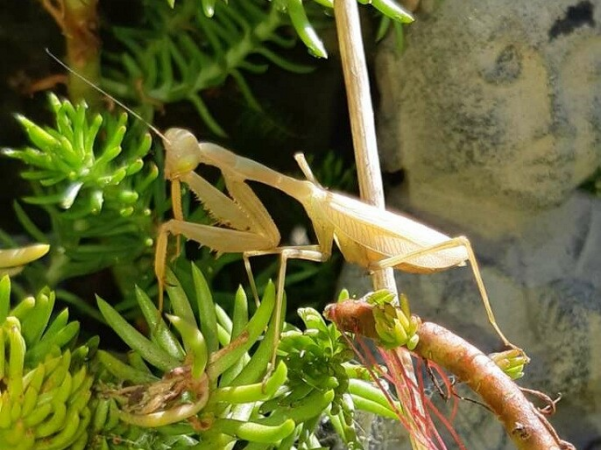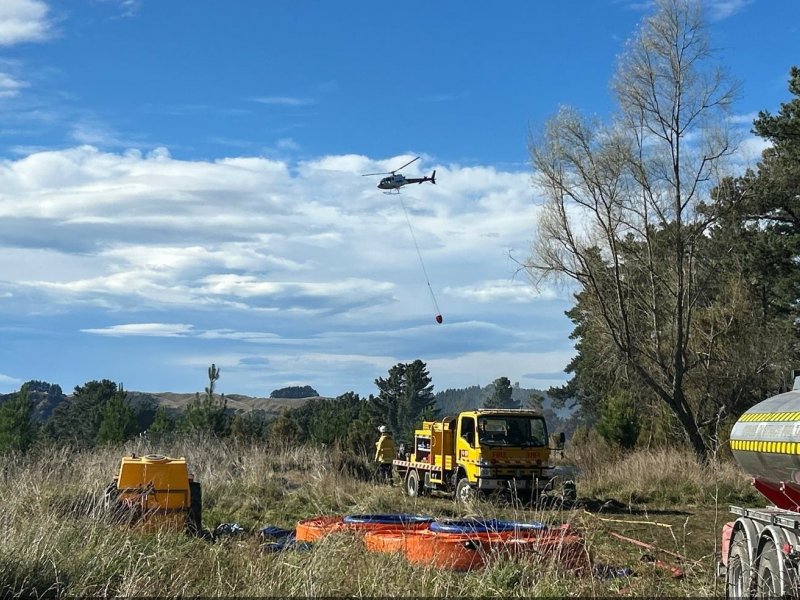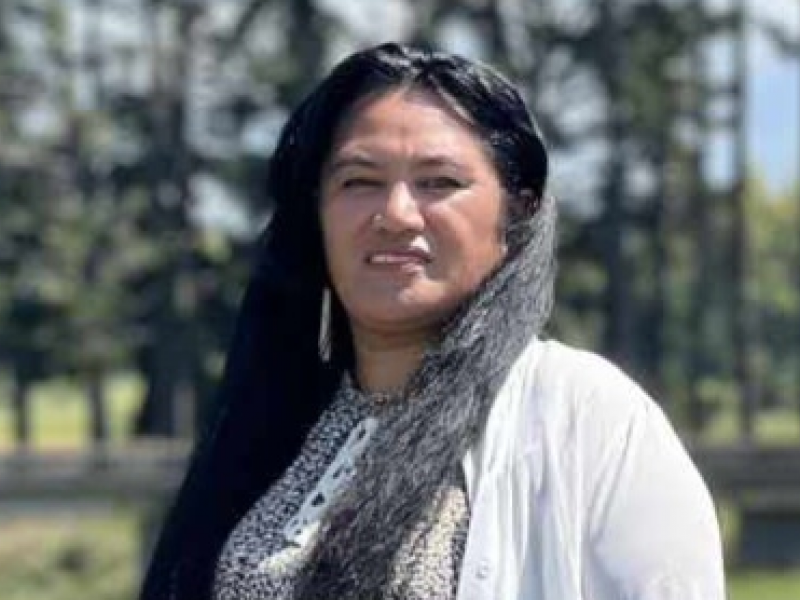The balance of nature is in our hands
When Sir David Attenborough said "The garden of Eden is no more” at the 2019 World Economic Forum Annual Meeting, it resonated across the globe.
This was Sir David’s conclusion on the destruction we have caused on the natural world. The biggest offenders being climate change and biodiversity destruction.
Sarah Cates is the gardening expert at Tony and Sarah’s Section Care. Contact them for all your gardening needs. Call 0274 598 179 or find them on Facebook.
Sir David has always touched my heart. His words have stayed with me.
He said "In the space of one life-time the period of climatic stability that allowed humans to flourish, has changed. The Garden of Eden is no more. We have changed the world so much, scientists say we are now in the Anthropocene – The Age of Humans”.

Never one to give up on humanity or nature, he went on to say "humans are a problem-solving species, but we haven’t yet applied ourselves to this problem with the focus it requires. We can create a world with clean air and water, unlimited energy… but we need a plan now. What we do in the next two years will profoundly affect the next thousand years”.
The next heartache to hit us was the alarming reports detailing the decline in the insect population. A newly published review of 73 reports on insect decline around the world found that over 40 percent of insect species are threatened with extinction. The impact of this extinction on humanity will be catastrophic.

These reports can leave us feeling hopeless. But we need to rise above feelings of fear and grief. This is our home and we are accountable for its care. Feelings of empowerment, taking back our planet, and making conscious decisions - for the greater good – will be healthier for us as individuals, the entire human race and all of Earth’s species.
Small changes in our behaviours all add up. If the majority of us make positive changes, we can make a difference. Like a colony of ants, we need to work together.
Today, I am appealing to the gardeners to help restore the balance of nature. We gardeners are millions strong. Imagine how much land we would have if we all put our gardens together!

Through mutual support, we can make substantial changes that will improve the conditions and outlook for our insect comrades.
Insects are frequently misunderstood and underappreciated. Indeed, many of us have felt that way from time to time! However, this misconception has led to us into troubled waters.

What do insects do? And why are they so important?
Insects provide crucial ecological functions and ecosystem services. Each insect plays a role in its trophic niche. Insects are the key components in diverse ecosystems. They are vital for human survival as crops cannot be produced without these ecological functions.
They carry out a number of duties:
Ecosystem Cycling – Insects transform living biomass into useable nutrients for plants, and other insects. Nutrient cycling is one of the most important processes that occurs in an ecosystem.

Pollination – Many plant species rely on insects for pollination. The important pollinators are bees, butterflies, bumblebees, beetles and flies. Around 72 percent of the world’s crops are dependent on insects for pollination.
Predation / Parasitism – Many insects control the proliferation of pest insects that eat and destroy human crops. A predator insect may eat hundreds of pests, throughout the pest’s life-cycle, in a single day.

Decomposition – The decomposition of organic waste such as dung and decaying flesh of dead animals, is a process largely carried out by insects. The decomposition work insects carry out provides a food source for diverse communities of insects, improves pasture health, and through the nutrient-cycle process, improves soil health.
How can we support our local insects?
We can create safe havens, insect utopia, within our gardens. The Entomological Society of New Zealand has come up with the following guidelines that will encourage insects into your garden.

1. Grow plants that flower all months of year
Flowers need to be of different shapes and sizes, so they are suitable for many varieties of insects. Include plants of: The carrot family, the salvia family, the daisy family. Red valerian is good for moths. Also plant Heliotrope, Sedum, Hebes, Buckwheat and Phacelia.
If you can stand to grow your lawn a little longer than usual this will encourage the growth of lawn flowers. Hoverflies love plantain. If you have room, create a ‘wild’ area, much like a meadow.

2. Grow food plants for butterflies and day moths
Species include: Kowhai, Coprosma, Pittosporum, NZ Flax, Native Cortaderia, Cabbage Trees, Manuka and kanuka, and Hebes.
3. Encourage soil and litter fauna
Create a diversity of surface layers on the ground. Include different sizes and textures. These can be incorporated into a garden: large pieces of bark, bricks and pieces of old roughed up concrete, lawn clippings around plants, chipped branches, rotten wood on soil, and piles of coarsely chopped vegetation under shrubs or trees.

4. Create diverse and special habitats
Place large stones loose on the ground, create homes by having piles of dead leaves and bark matter. A fun thing to do with children is to build insect motels. This will help break down fear - that many children, (frequently passed from their parents) - have around insects.
5. leave an area of compacted bare clay soil
Native bees, tiger beetles, and ant lions can make holes and live

6. Eliminate all pesticides!
7. Support local organic farmers
They go the extra mile to provide food that is free from synthetic pesticides.

























